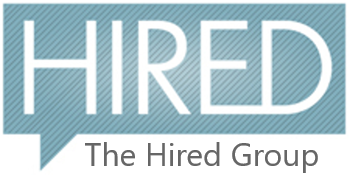
Mistake 1
Making the first job choice based on initial salary instead of experience.
Often the best paying first job is not the best long-term option. You first want to consider what experience this job will give you, what you can contribute, and where this job may lead you in the future. Finding the right place in the beginning will be worth millions in future dollars and thousands of exciting hours doing the things you’ll really love.
Mistake 2
Interviewing only with big companies that have impressive names.
There is a lot of glamour in saying you interviewed with Proctor & Gamble or Pepsi. There’s no question that a job with a major, well-known company looks good on a resume. In a big company, you will most likely perform a small part of a large function. You may have one year’s experience five times instead of five years experience.
Over 80% of the job growth in America is in small companies with less than 100 employees. In companies of this size, you are more likely to be given greater responsibility, a greater variety of experience, and five years of experiences in every one year.
Mistake 3
Going to graduate school.
Graduate school is absolutely necessary for those entering professions such as medicine and law. It is also advisable for those who plan to have a teaching career in higher education. Beyond that, it is good to stop and think about why graduate school might be advisable.
Some 80-90% make the decision to go to graduate school because they have not decided on some other course of action. That may be because no one has given the student a system for making any other decision. Everyone expects the student to miraculously come up with an answer based solely on the experience gained in a relatively isolated educational environment. So, as with all decisions, most end up taking the course of least resistance. It sounds good to say you are going to get a graduate degree. For most, it is a convenient way to delay making a firm career decision.
It is absolutely essential that you carefully examine the reasons for going to graduate school. If a graduate degree will move you closer to your goal of getting better results in the real world and you have arrived at that decision after thorough research, then by all means go for it. If not, it would be in your best interest to do some research. Go out in the job market. You might find it is more profitable to spend a year in the work force, rather than a year in graduate school. You will probably discover some very revealing things about yourself and what you really want to do.
Mistake 4
Making a career decision based on what subjects you enjoy during college years.
College is supposed to teach you to think, but too often the actual subject matter has little or no application to the work place. It takes three to five years for most college curriculums to catch up with what needs to be taught to help people fit into the real world.
One student, for instance, liked math and developed good skills with numbers and finance in college. To use these skills, he decided to become a stockbroker. He found, to his dismay, that the principal skill he needed to be a successful broker was to get people to buy and that brokers do very little with math.
A student may enjoy and be skilled in the learning process, but then discover that he doesn’t have tolerance for the type of everyday work that is part of the job. The typical example is the medical student who is often a good memorizer and breezes through medical school. He then discovers that he dislikes the day to day repetition of seeing 20 or 30 patients, many of whom have the same type of problem.
Mistake 5
Looking only for what YOU want instead of looking for what value you can add to a company.
Every college graduate is looking for a job. Every employer is looking for people who can add value — make the company more successful. So instead of just looking for a job, start looking for places where you can make a significant contribution. What can you do for them that is currently not being done? If you have the initiative and the assertiveness to do more than just come in and do a job, you’ll have more jobs to choose from than you can handle.
Former NFL coach, Bum Phillips, told a group of Eagle U students that in football there are two types of players he couldn’t work with — those who asked and those who would do nothing else. Company leaders are cautious about the same thing. Demonstrate your ability to be cooperative, to think, act and add value, and you’ll be the most valued candidate for a job.
Mistake 6
Interviewing for a job rather than interviewing for information.
This is the most often made mistake of all. In an attempt to be gainfully employed, most students jump right into the job interview pool without finding out the temperature of the water or looking to see which pool is the best one to swim. Just about everyone will talk with a college student who asks for help. Most employers remember being in the difficult position of trying to figure out what career direction to take. So why not take advantage of this valuable resource? Just ask.
But, you need to know how to ask. Imagine cutting years off your career path by starting at the right place, instead of going through the first five to seven years by trial and error. It can be done. All you have to do is learn the system and act on it.
Conclusion
These aren’t all the potential mistakes facing young people but there is no better way to get started than to learn early the system that will help you reach your career objectives. Imagine going to your ten-year class reunion. While most of your former class mates will be talking about finally getting settled in something they enjoy doing, you will have spent the first ten years of your career doing something you love and getting great results.
Written by: Steven J. Anderson, Co-Founder and Trustee of Eagle University. Eagle University is North America’s leading career jump-start program for high school and college students.

Recent Comments